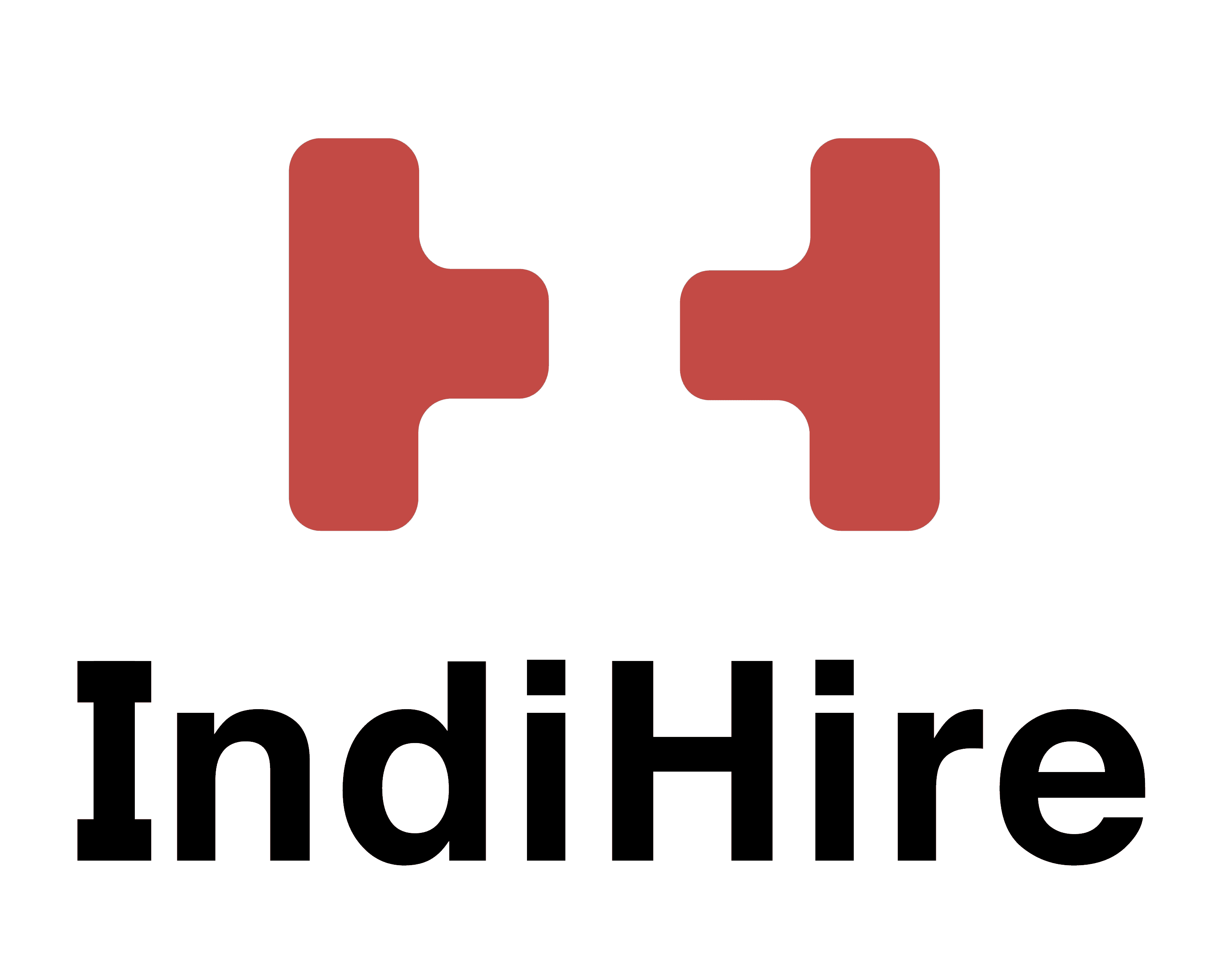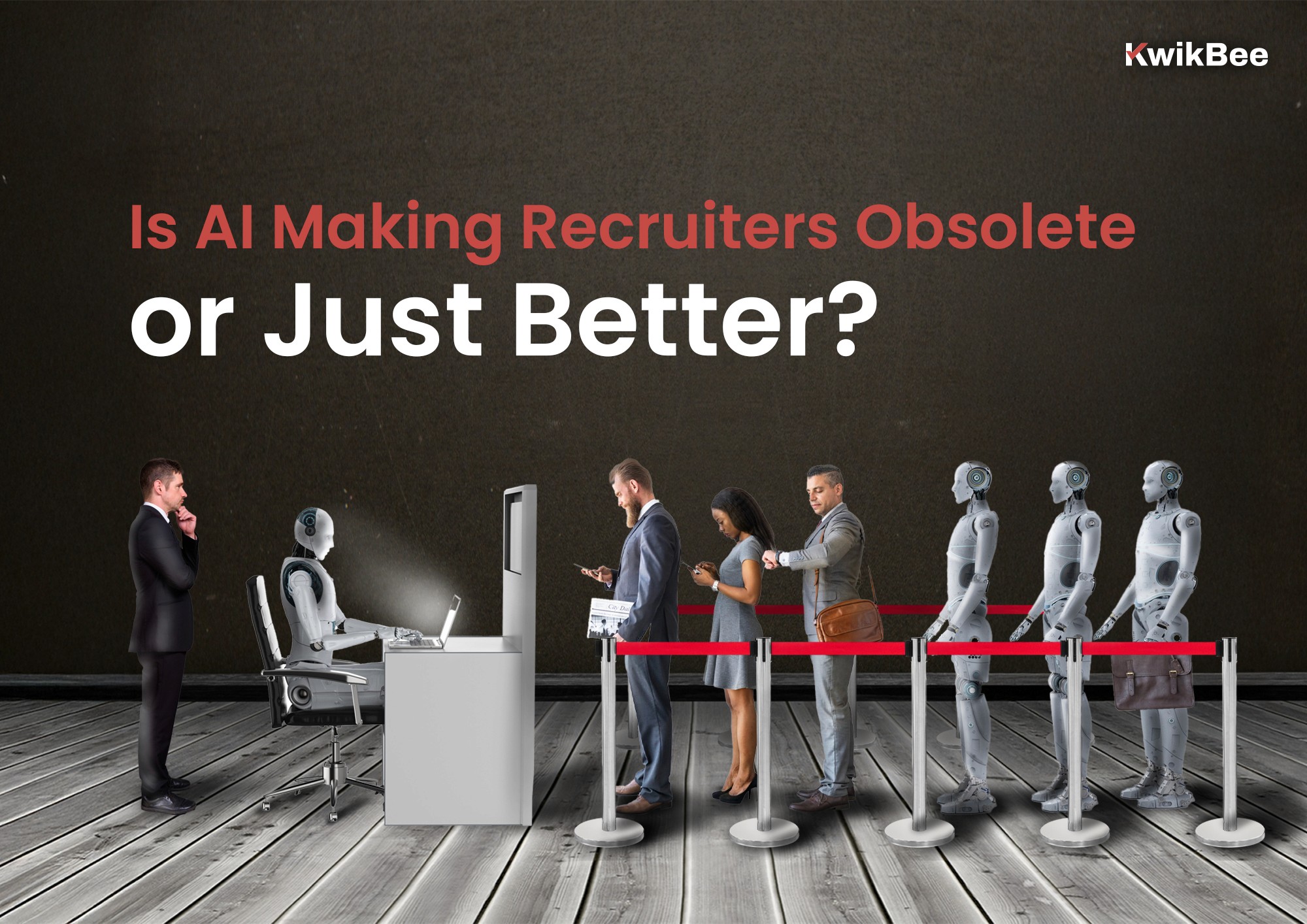Is AI Making Recruiters Obsolete – or Just Better?
It is 12 pm, and while you are thinking of finally closing that senior developer role that has been in your pipeline for three months, an AI system is quietly screening 500 resumes, conducting preliminary assessment, and sending personalized follow-ups.
Does it sound like science fiction?
Well, welcome to 2025, where artificial intelligence is not just knocking on recruitment's door – it is already here and is changing things as we know them.
But here is the million-dollar question that is keeping the TA community awake at night: Are we witnessing human recruiters become obsolete, or are we actually watching them evolve into something more powerful?
The Great AI Invasion: What's Really Happening?
Let us cut through the noise and get real about what is happening in our industry. AI is not some distant threat lurking around anymore – it is already here, working alongside recruiters across the globe.
We are talking about systems that can parse through thousands of applications faster than we ever thought possible. AI-powered platforms are now conducting initial screenings, analyzing video interviews for micro-expressions, and even predicting which candidates are most likely to accept offers.
It is like having a tireless intern who never needs coffee breaks and does not complain about working weekends.
But here is where it gets interesting. Companies leveraging AI effectively are not necessarily the ones replacing their human talent teams. Instead, they are the ones making their recruiters superhuman.
The Efficiency Revolution: Numbers Don't Lie
Let us talk about data. The data coming out of early AI adoption in recruitment is surprising. Companies using AI-powered recruitment tools are seeing:
Major reduction in time-to-hire for standard roles
Absolute improvement in candidate quality scores
Significant decrease in recruitment costs per hire
These are not just pretty stats – they represent real ROI that is making CFOs sit up and take notice. When a traditional recruiter might tele-screen 20 candidates in a day, AI systems are processing hundreds while simultaneously checking references, analyzing skill assessments, and cross-referencing social media profiles.
Think about it: While you are stuck in back-to-back interviews trying to decipher whether a candidate's "passion for growth" translates to actual competence, AI is already building predictive models about their long-term success probability.
The Human Touch: What AI Can't Replicate
Now, before we start updating our LinkedIn profiles to "Former Recruiter", let us stop and think for a moment. Here is what the pro-AI professionals often forget to mention: Recruitment is not just about matching keywords and qualifications.
Remember that awkward moment when a candidate asks about company culture during a phone screen? Or when you need to navigate the delicate conversation about salary expectations with a passive candidate who is perfectly happy in their current role?
These moments require something AI cannot even touch as of now. Genuine human intuition and emotional intelligence.
We have all been there – reading between the lines of what a candidate is not saying, picking up on subtle cues that suggest they are about to ghost you for another offer, or sensing that a hiring manager's "requirements" are really more like "nice-to-haves".
AI might be great at pattern recognition, but it is still learning the art of reading the room.
The Evolution Story: Recruiters 2.0
Here is where the narrative gets really exciting. The most successful talent acquisition professionals are not fighting AI – they are embracing it. They are becoming what we can call "Recruiters 2.0". Hybrid professionals leverage artificial intelligence to handle the mundane while focusing their human energy on the complex, relationship-driven aspects of talent acquisition.
Imagine, instead of spending hours manually screening resumes, you are using AI to create a qualified candidate pool, then applying your expertise to evaluate cultural fit, assess leadership potential, and navigate complex negotiations.
It is like having a research assistant who never sleeps, never misses details, and never has Monday morning blues.
The Strategic Advantage: Why Human + AI Wins?
Which companies are absolutely crushing it in the talent game right now? They are the ones not choosing between human recruiters and AI – they are combining both into something more powerful than either could be alone.
AI excels at analytical tasks, while humans excel at relationship-building and strategic thinking. When a senior executive is considering a career move, they do not want to chat with a chatbot about their aspirations and concerns. They want to connect with someone who understands their industry, their challenges, and their career trajectory.
But we also do not want a human recruiter to miss the perfect candidate because they are overwhelmed by application volume or forgot to follow up at the right time.
Real-World Reality Check: The 3 Sides of AI & Automation
Let us understand what is actually happening in companies that have embraced AI recruitment tools. The results tell various different stories, and the learning curve is real.
The Good Side: Companies are finding candidates they never would have discovered through traditional methods. AI is uncovering hidden gems in resume databases and identifying passive candidates with the exact skill combinations needed.
The Bad Side: Some organizations are discovering that their AI systems have inherited human biases, leading to diversity and inclusion challenges they didn't anticipate.
The Ugly Side: A few companies have gone full automation and learned the hard way that candidate experience matters. Nothing kills your employer brand faster than a completely impersonal recruitment process that makes candidates feel like they are applying to a robot overlord.
The Skills Shift: What Recruiters Need Now?
If you are in talent acquisition and wondering how to stay relevant, here is your roadmap. The skills that will separate thriving recruiters from obsolete ones are not necessarily the ones you might expect:
Technical fluency is becoming non-negotiable. You do not need to code, but you do need to understand how AI tools work and how to optimize them for better results.
Data interpretation is your new best friend. AI provides insights, but human recruiters need to know what those insights mean and how to act on them.
Strategic thinking is more valuable than ever. While AI handles tactical execution, human recruiters need to focus on long-term talent strategy and workforce planning.
The Future Landscape: What's Next?
Looking ahead, the recruitment industry is heading toward what we call "augmented intelligence" – AI and humans working seamlessly together.
We are already experiencing early versions of this in companies where AI handles initial candidate outreach, scheduling, and basic qualification, while human recruiters focus on relationship building, complex assessments, and strategic consultation with hiring managers.
The recruiters who thrive in this new landscape will not be the ones who resist change – they will be the ones who embrace it and find creative ways to add uniquely human value.
The Bottom Line
So, is AI making recruiters obsolete?
The short answer is no – but it is making some recruiting approaches obsolete. The recruiters who are worried should be the ones still doing things the same way they did five years ago.
The future belongs to talent acquisition professionals who can harness AI's analytical power while providing strategic thinking, emotional intelligence, and relationship-building skills that no algorithm can replicate.
Think of AI as the ultimate recruiting power-up. It is not replacing you – it is making the best version of yourself possible.
What is your take on the AI revolution in recruitment? Are you seeing it as a threat or an opportunity in your organization?


